The traffic-light coalition: a new start for Germany?
New government expected to be sworn in next week, signalling end of Angela Merkel’s 16-year rule
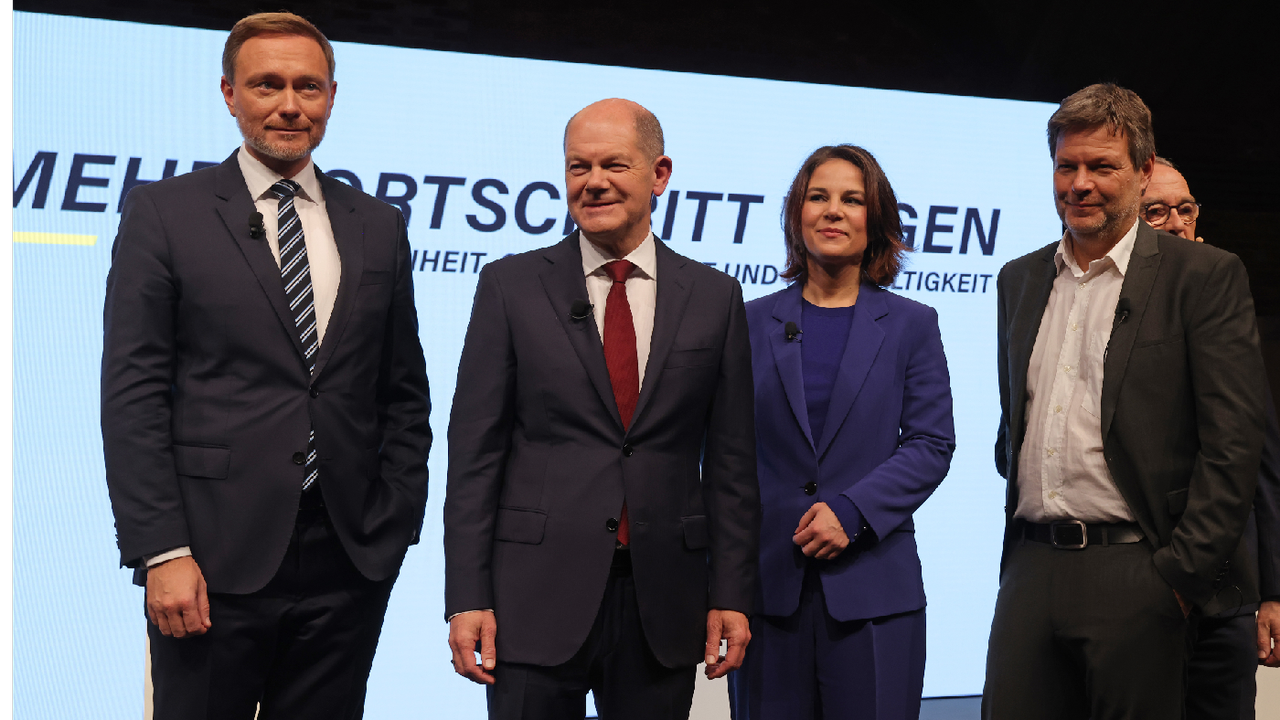
The “traffic-light” coalition is a go-go, said Marcel Fürstenau in Deutsche Welle (Bonn). After two months of intense negotiations following September’s German federal elections, a groundbreaking deal has been struck to form the country’s next government.
The victorious centre-left SPD (red) will provide the next chancellor, Olaf Scholz. It will share power with the Greens (whose co-leader, Annalena Baerbock, is to be foreign minister) and the yellow-flagged, free-market FDP, whose leader Christian Lindner will serve as finance minister.
The 177-page coalition deal, unveiled in Berlin last week, must be signed off by party members, but the new government is expected to be sworn in next week, signalling the end of Angela Merkel’s 16-year conservative rule. And though it faces a daunting in-tray – not least soaring Covid rates – there’s plenty of reason for cheer. The parties have shown an admirable willingness to compromise, and the result is “an ambitious programme for Germany, Europe and the world”.
Subscribe to The Week
Escape your echo chamber. Get the facts behind the news, plus analysis from multiple perspectives.

Sign up for The Week's Free Newsletters
From our morning news briefing to a weekly Good News Newsletter, get the best of The Week delivered directly to your inbox.
From our morning news briefing to a weekly Good News Newsletter, get the best of The Week delivered directly to your inbox.
The parties seem to have found plenty of common ground, said Frankfurter Allgemeine Zeitung. Among a raft of legislative proposals in the agreement are plans to liberalise Germany’s archaic citizenship laws, raise the hourly minimum wage to s12, and even legalise cannabis. The new government will also shrink the size of the German parliament, expand gay and trans rights, and give 16-year-olds the vote.
But the coalition’s “central concern” is the environment, said Lennart Pfahler in Die Welt (Berlin). The word “climate” appears 198 times in the agreement (54 times more than the word “Germany”); and the deal includes pledges to phase out coal by 2030 instead of 2038, and expand renewable energies to cover 80% of Germany’s needs by 2030 (up from 45% today). There’ll even be a new economy and climate “super ministry”, probably run by the Greens.
Don’t expect it all to be plain sailing, said The Economist. On fiscal policy, in particular, the parties “bickered” during coalition talks; and the FDP’s thrifty instincts mean the Greens will struggle to meet their s50bn annual spending plans for a green transition. And though there was consensus on the need for a tough stance on China, talks on Russia were so fraught that the coalition agreement ducks any explicit mention of the controversial Nord Stream 2 pipeline, which is due to supply Russian gas to Europe.
What’s more, the government is coming to power as Germany faces an escalating Covid crisis. Cases in the country are at their highest-ever levels; thousands of people are dying from the virus each week; and calls for a new national lockdown are growing.
Nevertheless, I feel oddly optimistic, said Katharina Schuler in Die Zeit (Hamburg). If the new government can get through the next few months, it might just make Germany a “more modern, more sustainable” and fairer place over the course of the next four years.
Sign up for Today's Best Articles in your inbox
A free daily email with the biggest news stories of the day – and the best features from TheWeek.com
-
 Book reviews: ‘Red Scare: Blacklists, McCarthyism, and the Making of Modern America’ and ‘How to End a Story: Collected Diaries, 1978–1998’
Book reviews: ‘Red Scare: Blacklists, McCarthyism, and the Making of Modern America’ and ‘How to End a Story: Collected Diaries, 1978–1998’Feature A political ‘witch hunt’ and Helen Garner’s journal entries
By The Week US Published
-
 The backlash against ChatGPT's Studio Ghibli filter
The backlash against ChatGPT's Studio Ghibli filterThe Explainer The studio's charming style has become part of a nebulous social media trend
By Theara Coleman, The Week US Published
-
 Why are student loan borrowers falling behind on payments?
Why are student loan borrowers falling behind on payments?Today's Big Question Delinquencies surge as the Trump administration upends the program
By Joel Mathis, The Week US Published
-
 'Like a sound from hell': Serbia and sonic weapons
'Like a sound from hell': Serbia and sonic weaponsThe Explainer Half a million people sign petition alleging Serbian police used an illegal 'sound cannon' to disrupt anti-government protests
By Abby Wilson Published
-
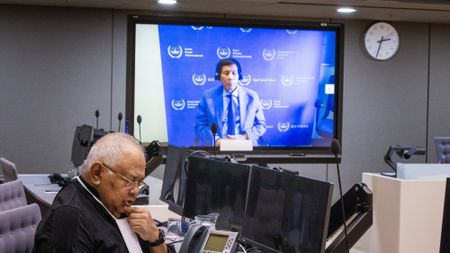 The arrest of the Philippines' former president leaves the country's drug war in disarray
The arrest of the Philippines' former president leaves the country's drug war in disarrayIn the Spotlight Rodrigo Duterte was arrested by the ICC earlier this month
By Justin Klawans, The Week US Published
-
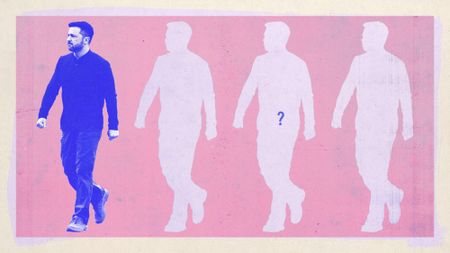 Ukrainian election: who could replace Zelenskyy?
Ukrainian election: who could replace Zelenskyy?The Explainer Donald Trump's 'dictator' jibe raises pressure on Ukraine to the polls while the country is under martial law
By Sorcha Bradley, The Week UK Published
-
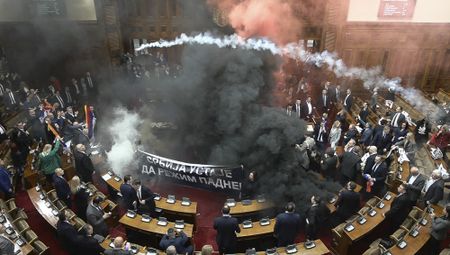 Why Serbian protesters set off smoke bombs in parliament
Why Serbian protesters set off smoke bombs in parliamentTHE EXPLAINER Ongoing anti-corruption protests erupted into full view this week as Serbian protesters threw the country's legislature into chaos
By Rafi Schwartz, The Week US Published
-
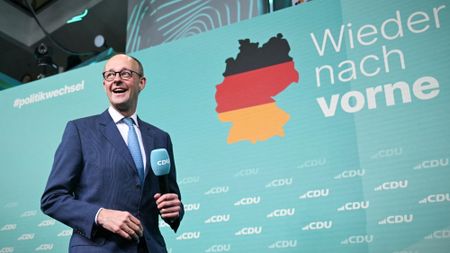 Germany's conservatives win power amid far-right gains
Germany's conservatives win power amid far-right gainsSpeed Read The party led by Friedrich Merz won the country's national election; the primary voter issues were the economy and immigration
By Peter Weber, The Week US Published
-
 The catastrophic conflict looming in the heart of Africa
The catastrophic conflict looming in the heart of AfricaIn the Spotlight Showdown between DR Congo and Rwanda has been a long time coming
By The Week UK Published
-
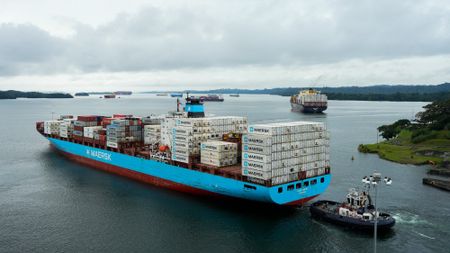 Donald Trump's grab for the Panama Canal
Donald Trump's grab for the Panama CanalThe Explainer The US has a big interest in the canal through which 40% of its container traffic passes
By The Week UK Published
-
 Who is the Hat Man? 'Shadow people' and sleep paralysis
Who is the Hat Man? 'Shadow people' and sleep paralysisIn Depth 'Sleep demons' have plagued our dreams throughout the centuries, but the explanation could be medical
By The Week Staff Published